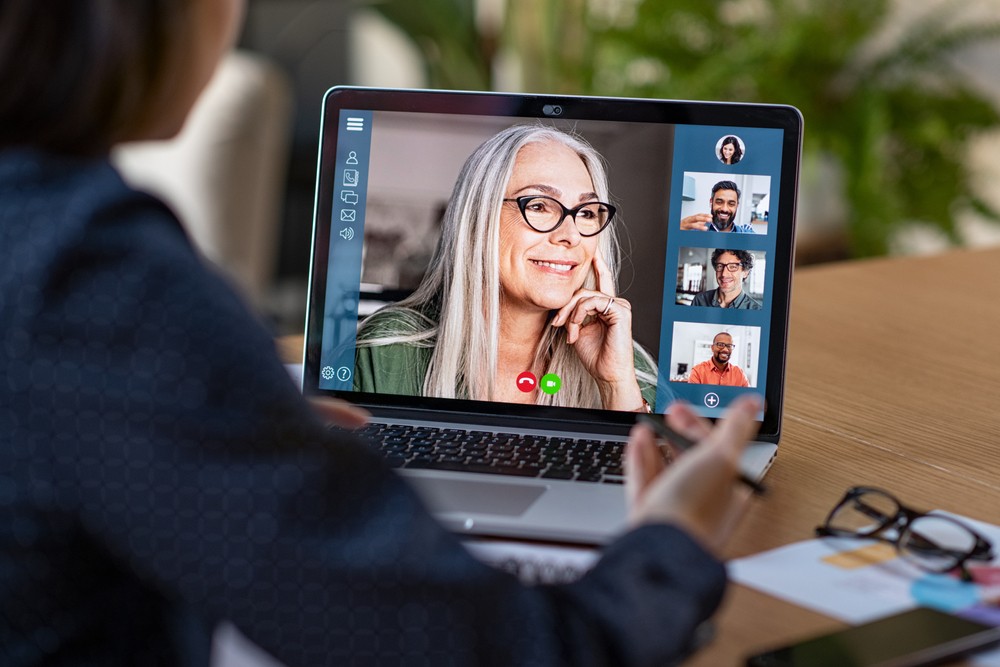Mental health challenges created by the COVID-19 pandemic have impacted workers differently depending on their seniority, generation, and location according to a new report by Oracle and Workplace Intelligence, a HR research and advisory firm. The study of more than 12,000 employees, managers, HR leaders and C-Suite executive across 11 countries, found that C-suite executives struggled to adapt more than their employees, younger generations experienced the most burnout, and that India, UAE, China and the U.S. had the most workers reporting the pandemic has negatively impacted their mental health.
C-Suite Executives See the Biggest Challenges in Remote Work
C-level executives have struggled the most with adapting to remote work realities and report they are suffering from mental health issues more than their employees, but they are also the most open to finding help in AI.
- C-Suite execs (53 percent) have struggled with mental health issues in the workplace more than their employees (45 percent).
- C-Suite execs also had the hardest time adapting to virtual lifestyles with 85 percent reporting significant remote work challenges including collaborating with teams virtually (39 percent), managing increased stress and anxiety (35 percent), and lacking workplace culture (34 percent).
- C-Suite execs were also 29 percent more likely to experience difficulties learning new technologies for remote work than employees; once they adjusted to the new normal, C-Suite execs were 26 percent more likely to find increased productivity than employees
- C-Suite execs are the most open to using AI for help with mental health: 73 percent would prefer to talk to a robot (i.e. chatbots and digital assistants) about their mental health over a human compared to 61 percent of employees.
- C-Suite execs are 23 percent more likely to see AI benefits than employees; 80 percent of C-Suite leaders noted AI has already helped their mental health at work.
Gen Z and Millennials are Hustlin’ Harder, Suffering More, and Seeking AI Relief
Younger workers are feeling the most burnout due to the mental health effects of the pandemic and are more open to asking AI for relief.
- Gen Z is more likely to be negatively impacted by the pandemic than any other generation. Nearly 90 percent of Gen Z workers said COVID-19 has negatively impacted their mental health and 94 percent noted workplace stress impacts their home life as well.
- Gen Z workers are 2X more likely than Baby Boomers to work extra hours during the pandemic, and Millennials are 130 percent more likely to have experienced burnout than Baby Boomers.
- Younger generations are the most likely to turn to robots for support: Gen Z workers are 105 percent more likely to talk to a robot over their manager about stress and anxiety at work than Baby Boomers. 84 percent of Gen Z and 77 percent of Millennials prefer robots over humans to help with their mental health.
- Gen Z workers are 73 percent more likely than Baby Boomers to benefit from AI at work: 90 percent of Gen Z say AI has helped their mental health at work and 93 percent want their companies to provide technology to support their mental health.
Employees in Different Countries are Experiencing Very Different Realities
Just like COVID-19, the mental health crisis has impacted people differently across the world. People in India and China are being hit the hardest and are the most open to AI support, while workers in Italy, Germany, and Japan are seeing less of an impact.
- India (89 percent), UAE (86 percent), China (83 percent) and the U.S. (81 percent) had the most workers reporting the pandemic has negatively impacted their mental health. Workers in China (43 percent) and India (32 percent) are also the most burned out from overwork as a result of COVID-19.
- Italy reported the lowest number of people experiencing a negative impact on their mental health from the pandemic (65 percent). Workers in Germany were the least likely to report that 2020 was the most stressful year at work ever (52 percent).
- 29 percent of people in Japan say they have not experienced many difficulties at all working remotely or collaborating with teams virtually. In contrast, 96 percent of people in India admit it has been challenging to keep up with the pace of technology at work.
- People in China (97 percent) and India (92 percent) are the most open to having a robot as a therapist or counsellor. People in France (68 percent) and the UK (69 percent) were the most hesitant.
- People in India and China are 33 percent more likely to talk to a robot than their peers in other countries: 91 percent of Indian workers and 91 percent of Chinese workers would prefer a robot over their manager to talk about stress and anxiety at work.
Despite Demographics, People Need Help from Their Employers. It’s Time to Step Up
Despite seniority, generation and geographic differences, people all over the world agree: The pandemic has negatively impacted the mental health of the global workforce—and they want help.
- 78 percent of workers say the pandemic has negatively affected their mental health.
- 76 percent of people believe their company should be doing more to protect their mental health.
- 83 percent would like their company to provide technology to support their mental health.




